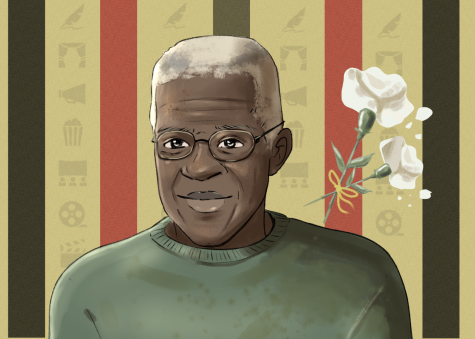Paul Carter Harrison, ‘pioneer of Black Theatre studies’ and former Theatre Department chair, dies at 85
February 25, 2022

Paul Carter Harrison, the former Theatre Department chair at Columbia and African American playwright, died in Atlanta, Georgia, at 85 years old. Since his death, people are looking back at his contributions to the college and the development of Black theatre.
Harrison died on Dec. 27, 2021, and the college officially announced his death last month.
According to a statement from the Office of the Provost, Harrison was the chair of the then Theatre/Music Department from 1976 to 1980, and then became a full-time faculty member and coordinator of the Theodore Ward Prize for African American playwrights until he retired in 2002 with the title of Professor Emeritus of Theatre.
Harrison taught at Howard University, the State University of California at Sacramento, and the University of Massachusetts at Amherst before working at Columbia. He had a bachelor’s degree in psychology and a master’s in phenomenology from the New School for Social Research.
In addition to his academic work, Harrison created plays and books that have helped shaped theatre as we know it today. Harrison’s play “The Great MacDaddy” and his book “The Drama of the Nommo: Black Theatre in the African Continuum”explored social and political ideas beyond that of many of his peers, showing how Black American culture is rooted in African tradition, even as it mixed with white tradition.
Omiyemi Green, a professor of theatre and Africana studies at the College of William and Mary, said in an article for the New York Times that Harrison “talked about Black performance traditions such as Carnival, which are rooted in rhythm, drums and movement” in his work. Green noted the relationship these elements have with Black churches, and how that movement into a new space has kept it connected with a traditional spirit.
Khalid Long, an assistant professor in the Theatre Department, said although he did not know him personally, Harrison influenced who he is in the theatre community today.
Long heard of Harrison when he was a graduate student in 2009 and studying under Paul Jackson, another Black theatre scholar. Long said Jackson helped him delve into Black theatre, history, culture and criticism and said Harrison’s work was prevalent in that journey.
“[‘The Drama of the Nommo: Black Theatre in the African Continuum’] was a defining text,” Long said. “It was a seminal text to Black theatre criticism. It gave us this Afro-Centric way of looking at theatre as Black people in America.”
Through the years, Long said he would see Harrison at conferences and other theatre events.
“He gave us a way to look at Black Theatre outside of the western paradigm,” Long said. “He gave us a way to look at the theatre so that we can acknowledge the African diaspora contribution to theatre rather than always looking at the Aristotelian model for theatre and performance.”
Long said before Harrison passed away, he found archival interviews Harrison participated in while he was at Columbia. Long said Harrison was instrumental to the development of the Theatre Department since at that time the Theatre and Music Departments were together. But Long said the credit for the Theatre Department’s development is not given to Harrison as it should be.
“I really don’t think he gets enough credit for that,” Long said. “Paul Carter Harrison pioneered the development of the theatre program at Columbia, but he’s not given that credit. I want to acknowledge that.”
Long also wants to acknowledge Harrison’s work outside of his critical scholarship and playwriting as a professor and administrator at Columbia.
In a statement to the college, Long said, “[Harrison’s] work was essential to my early development in Black theatre studies, and I will forever be immensely grateful for the legacy he has left us with.”
Harrison is survived by his wife Wanda Malone, his daughter Fonteyn Harrison and his grandson.






